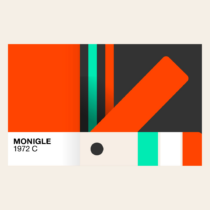As if being voted “The Worst Company in America” in 2012 and 2013 weren’t enough, EA had another rough year in 2017 when its use of in-game purchases and loot boxes triggered the outrage of many customers. Upon release of the highly anticipated game Star Wars Battlefront 2, the majority of in-game content wasn’t initially available; unlocking the full game would require a gamer to log 4,528 hours of gameplay or shell out $2,100. While the focus on in-game purchases has become synonymous with the EA brand, this time the quality of the initial game wasn’t on par with the quality that EA has been known to produce in the past. Consumers’ outrage prompted legislators from Hawaii and Belgium to rethink gambling laws and whether loot boxes qualify as gambling, as well as to question whether these games should be available for purchase by minors. Following the backlash, EA immediately relaxed the amount of money and gameplay needed to unlock the full game, but that wasn’t enough to stop its share prices falling 8.5 percent in November. Maybe by increasing its focus on its Outreach pillars—Education, Inclusion and Community—EA can get back in consumers’ good graces in 2018. –Philip Ward
If you haven’t heard of HQ Trivia by now, chances are you don’t own an iPhone or you live under a solid aggregate of one or more minerals or mineraloids. That’s the definition of a rock, by the way, and is the type of thing you may learn from playing the game as you fight for the chance to win money. HQ is a daily global trivia game show that anyone (using iOS, and, as of Jan. 1, Android) can play and win. Having attracted more than 730,000 players on Christmas—compared to a mere 3,000 in October—it’s become something of an overnight sensation by tapping into the power of direct-to-consumer experiences. No longer do you have to wonder how well you’d perform on Jeopardy or Who Wants To Be A Millionaire as you scream at the television set when you know the answer; now you can prove your trivia prowess and outperform your friends along the way. Time will tell if it’s just another fad but for now, it shows no sign of slowing down and opportunities are plentiful for both HQ and other brands whose target audience is marked by their attachment to their mobile devices. For HQ, think monetization of extra lives, geo-targeted games and additional gameshow formats. For brands wanting to get in front of said growing audience, think product placement via sponsored questions and the knock-on web traffic generated by eager players frantically googling the answers to stay in the game. Watch this space. –Chris Binding
No matter what side you come down on regarding the player protests, there’s no doubt about it: The NFL has had a year. Between those, owner indiscretions (tone-deaf comments like “inmates running the prison,” allegations of workplace misconduct), the escalating consciousness of the league’s historically lax and/or head-in-the-sand concussion policies (it’s recently revised its protocol in this respect), and the five-year, $200 million contract extension of continually embattled commissioner Roger Goddell, it’s fair to say the NFL brand has taken a hit. Moreover, though the noise around its treatment of domestic violence has died down somewhat, the issue resurfaced during this year’s draft, as multiple players with domestic violence accusations were picked up by teams. Take a look at the brand’s values—among them Respect and Integrity—and it’s evident the NFL can talk a good game, but still has a ways to go before it’s playing one. —Erin Engstrom
Three days into 2017, Wendy’s trolled a Twitter user, hard, about it’s fresh, never-frozen patties. With that as its starting point, the brand continued to tease, share snarky responses and attack other Twitter accounts, all seemingly in good fun. And though they’re seen as number three in the market, this humor has brought the brand an invitation to a rap battle (vs. Wingstop) and allowed them to roast McDonalds (for accidentally sending an incomplete tweet). While undoubtedly polarizing, the brand continues to swipe at competitors and consumers alike, creating consistency and delivering an unapologetic tone has attracted loyal followers. —Elspeth Monigle



